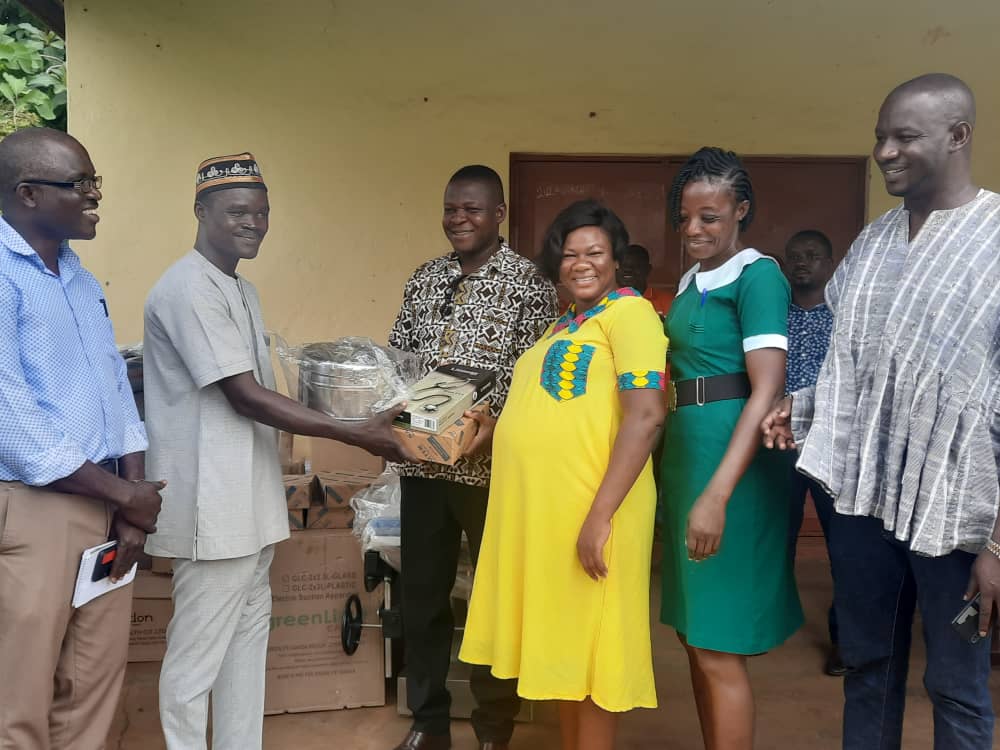By Albert Futukpor
Gushegu (N/R), Aug 31, GNA – Five Community-based Health Planning and Services (CHPS) Compounds in the Gushegu Municipality have been supported with essential medical equipment to improve emergency obstetric and newborn care (EmONC) in the area.
The medical equipment, valued at $40,000.00, included 26 different items such as delivery beds, delivery instruments, stethoscopes, thermometers, examination beds and other essential medical accessories.
The beneficiary facilities were Nawuhugu, Katani, Zinindo, Galwei and Kpanashei CHPS Compounds.
The presentation of the essential medical equipment to the CHPS Compounds formed part of the Developing Acute Care and Emergency Referral System (ACERS) project, which is being implemented in the Gushegu Municipality and Nkwanta South District by the Catholic Relief Services (CRS), an international non-governmental organisation, with funding from the United States Agency for International Development (USAID).
The ACRES project is a four-year (September 2018 – December 2022) initiative designed to contribute to strengthening the primary health care system in the country.
It focuses on improving EmONC by contributing to addressing delays in seeking prompt care, delays in reaching the point of care and delays in receiving appropriate care in the implementing areas.
Mr Timothy Akanpabadai, Head of Office for Tamale of CRS, who represented the Country Representative of CRS, and the Chief of Party of the ACERS project to present the equipment to health authorities of the Gushegu Municipality at Gushegu, said, “With these additional items, the expectation is to even improve the gains already made by the ACERS project.”
The CRS, as the organisation leadership for the ACERS project, unearthed key gaps with regard to essential medical equipment and logistics as part of its ongoing research work.
The gaps were seen to stand in the way of achieving excellence in the project that worked to save the lives of women and children.
An appeal was, therefore, made to USAID and the response had been the procurement of the essential medical equipment.
Mr Akanpabadai spoke about some of the gains made under the project saying since its inception, the project had contributed to a marked reduction in institutional maternal mortality ratios (IMR) in the two districts.
He said, “The IMR in Gushegu reduced from 112 per 100,000 live births in 2019 to 21.5 per 100,000 live births at the close of 2021. In the same period, IMR in Nkwanta South reduced from 136 to 83 per 100,000 live births.”
He said, “Currently, the proportion of deliveries attended to by a skilled birth attendant has improved to 92 per cent in Gushegu and 85% in Nkwanta South from 69.8% and 53.65% respectively.”
He appealed to health authorities to take good care of the equipment to continue to serve the intended purpose.

Mr Yaja Dawuni Robert, the Gushegu Municipal Chief Executive, thanked CRS for the gesture, saying it complemented the efforts of the government to improve maternal and newborn care in the area.
Dr John Bertson Eleeza, the Northern Regional Director of Health, who was represented during the event, gave assurance to put the equipment to good use to help change the indicators for the better.
Mr Stephen Dadia, Gushegu Municipal Director of Health, said the items had come at the right time to help serve the people better, adding they would also help to increase facility delivery in the area.
GNA